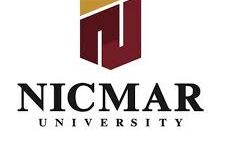- MIT-WPU launches India’s First Center of Excellence for Tunnelling and Underground Construction.
- Workshop highlights India’s growing need for climate-resilient infrastructure and the critical role of academic-industry collaboration.
- Experts from India, Europe, the UK, and the US discuss advanced tunnelling methods and innovations for challenging terrains like the Himalayas.
Bangalore, 23rd June 2025 : In a bid to boost sustainable infrastructure development, Hon’ble Union Minister for Road Transport and Highways, Mr. Nitin Gadkari inaugurated the International Workshop on “Sustainable Tunnelling for Better Life” at MIT World Peace University (MIT-WPU). The two-day event organized in collaboration with the International Tunnelling and Underground Space Association’s Committee on Education and Training (ITA-CET) has brought together global experts from India, Europe, the UK, and the US.
A key highlight of the event was the inauguration of the Center of Excellence for Tunneling and Underground Construction at MIT-WPU, India’s first-of-its-kind facility featuring a Tunnel Monitoring Laboratory and a Drilling & Blasting Laboratory. The Center of Excellence set up in collaboration with Sandvik and Tata Projects Ltd., aims to support advanced research and training in underground construction technologies.
The workshop featured technical sessions, keynote addresses, and panel discussions led by eminent experts such as Mr. Arnold Dix (Past President, International Tunnelling Association) and other eminent experts from the field.
During his address, Hon, Minister Mr. Nitin Gadkari said: “India is entering a golden era of infrastructure development, with tunnels playing a crucial role in connectivity, safety, and sustainability. Over the next 10 years, we plan to build tunnel projects worth ₹2.5 to ₹3 lakh crore. To make this a reality, we must reduce construction costs without compromising quality. That means using new technologies and sustainable fuels like CNG, ethanol, hydrogen, and electric alternatives to diesel. We should also refurbish old tunnelling machines, import used ones from European countries like Austria, Norway, and Spain, and eventually manufacture our own. India’s geology varies by region, so research and training are essential. Industry experts and experienced engineers should guide students along with faculty. My ministry is ready to support with equipment and training. Together, with innovation, research, and commitment, we can make India self-reliant in tunnelling technology and infrastructure development.” He also lauded MIT-WPU for taking the first step toward research in sustainable tunnelling technology which is the need of the hour for a developing country like India.
Mr. Arnold Dix mentioned, “This Centre of Excellence is of global importance, as it addresses the disconnect between engineering expertise and the practical skills. Too often, young workers are placed at risk because they lack the training needed to safely construct what has been so carefully designed. At MIT-WPU, I see a unique connection between faculty and students, one that feels like a family. Graduates I met here just two years ago are now building the nation’s infrastructure, which is truly commendable. This Center is not only necessary, but also a recognition of the challenges we face, and I am confident it will play a vital role in building competence, saving lives, and advancing sustainable infrastructure both in India and globally.”
Dr. Vishwanath Karad, founder MIT-WPU said: “Despite advancements in education, science, and technology—from Facebook to AI—we still lack tools that truly foster peace. In 1996, we hosted the world’s first conference on integrating science, spirituality, and philosophy to explore pathways to peace. Yet, as chaos grows, I ask, can there be a sustainable method to achieve lasting peace? As an engineer with a spiritual outlook, I believe real progress lies not only in innovation but in aligning the four forces within every living cell: body, brain, mind, and spirit. Only through this inner harmony can we begin to understand consciousness, which I believe is the ultimate truth and the foundation for a peaceful world.”
Speaking at the event, Dr. Rahul Karad, Executive President of MIT-WPU said: “The inauguration of these two laboratories marks a significant step forward in fostering academia-industry collaboration. With the generous support of Tata and Sandvik, contributing equipment valued at nearly ₹2 crore, we are strengthening an ecosystem where research, innovation, and national development align. The continued presence and encouragement of Hon. Minister Mr. Nitin Gadkari highlights the government’s commitment to advancing indigenous research capacity. It is our aspiration to see Indian institutions take the lead in specialised domains such as tunnel engineering, in collaboration with both national and international partners.”
The sessions covered a wide range of topics including advanced tunnelling methods, use of digital tools like Building Information Modeling (BIM) and laser scanning, and strategies to minimize the environmental impact of tunnel construction. Discussions highlighted the pressing need for energy-efficient and climate-resilient technologies in large infrastructure projects.
At the program, MIT-WPU hosted the first-ever MIT-WPU Tunnelling Awards, recognizing outstanding tunnelling projects across India for excellence in innovation, safety, quality, and sustainability. Mr. S. K. Dharmadhikari highly respected technocrat in the infrastructure sector was conferred with the Lifetime Achievement Award for his invaluable contribution in nurturing and shaping the next generation of tunnel engineers. Companies like TATA Projects Ltd, Larsen & Toubro, Nagpur Mumbai Super Communication Expressway Limited (NMSCEL), J. Kumar Infra projects Ltd were awarded with different categories of awards.
The event also included a paper competition, offering students, young professionals, and researchers a platform to present ideas on tunnel design and emerging construction technologies.
The event was widely being appreciated for encouraging meaningful dialogue among stakeholders and fostering partnerships between academia, industry, and government to address India’s infrastructure challenges in a sustainable and responsible manner.
 Newspatrolling.com News cum Content Syndication Portal Online
Newspatrolling.com News cum Content Syndication Portal Online







